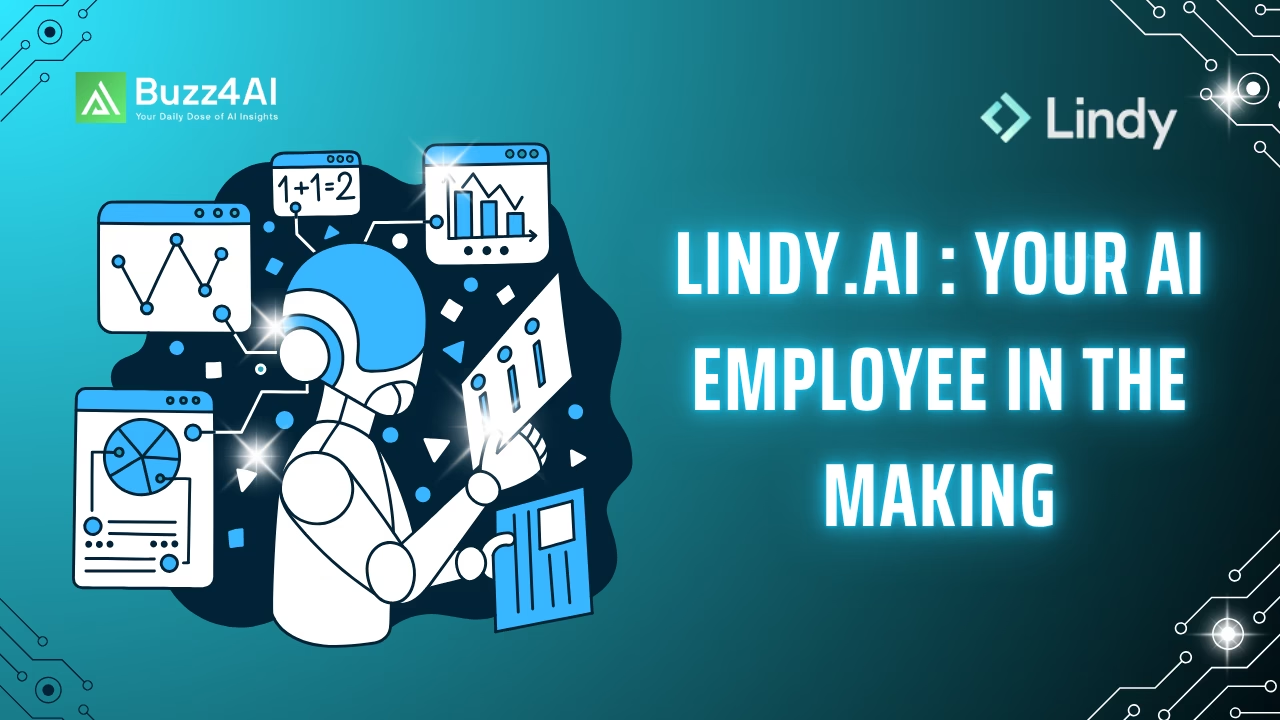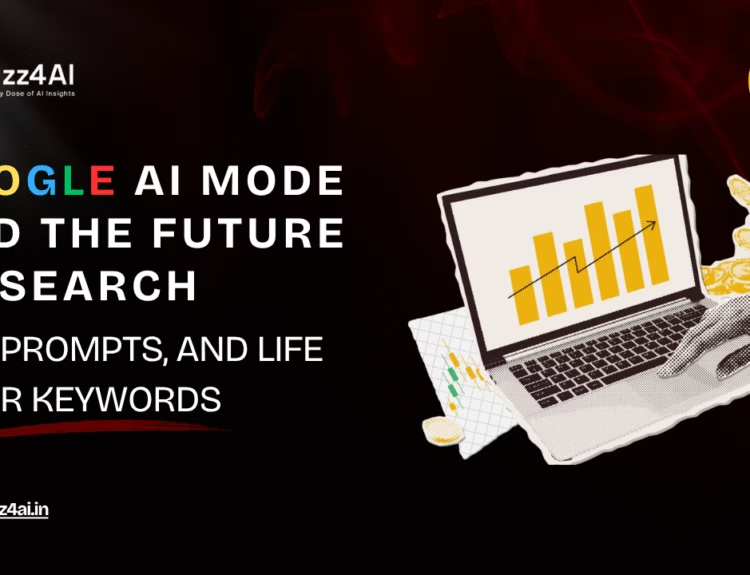Lindy.ai, In today’s AI-powered world, businesses are looking for smarter ways to automate routine tasks, boost efficiency, and cut operational costs.
Enter Lindy.ai, a platform that positions itself as your AI employee in the making. Designed to simplify business workflows using no-code AI, Lindy aims to become an integral part of your workforce—not just a tool, but a digital team member that learns, adapts, and executes.

From startups to enterprises, Lindy is making waves by enabling users to create customized AI assistants without writing a single line of code. Let’s explore what makes Lindy stand out in the fast-growing world of AI agents.
The Rise of No-Code AI Agents
Over the past few years, we’ve seen a surge in no-code AI agents—tools that empower non-technical users to build complex automation processes with drag-and-drop simplicity. This movement is reshaping how businesses adopt AI, making it accessible to sales teams, HR professionals, marketers, and project managers without depending on developers or data scientists.
Lindy.ai rides this wave by offering an intuitive interface where users can create intelligent agents that handle scheduling, email drafting, customer support, document summarization, and more. Whether it’s replying to emails, coordinating meetings, or scraping and interpreting online data, these agents operate with the intelligence of a junior employee—24/7.
How Lindy Works: Building Your First AI Agent
Getting started with Lindy is remarkably simple. Once you sign up, you’re taken to a dashboard where you can “hire” your first AI assistant. The process is entirely visual—users set goals, choose actions, and connect Lindy to apps like Gmail, Slack, Notion, Salesforce, and more. This is where the “How Lindy works: Building your first AI agent” becomes truly exciting.
Each AI agent can be trained to understand context and respond based on past interactions. For instance, a marketing assistant can read your incoming emails, filter leads, generate proposals, and even follow up—without human intervention. All of this is accomplished with just a few configuration steps, thanks to Lindy’s intelligent backend.
In this tweet, the user shares how managing sponsorship deals manually was time-consuming and often led to missed opportunities buried in their inbox. Everything changed after discovering @GetLindy’s Email Negotiator automation, which streamlined the negotiation process and eliminated the manual workload.
Described as a “complete game changer,” Lindy automated follow-ups, responses, and deal tracking—saving hours and recovering lost opportunities. The tweet highlights just how fast and easy it is to set up the tool, promising users can get started in under 60 seconds and transform their sponsorship workflow.
Unlike rigid automation platforms, Lindy learns from user feedback. The more it works with you, the better it understands how you operate. This iterative improvement helps businesses save hours on repetitive tasks and improve decision-making with AI-powered insights.
No-Code AI Assistants for Business and Productivity
What sets Lindy apart is its focus on no-code AI assistants for business and productivity. Unlike generic automation tools, Lindy’s agents are purpose-built to enhance workflows and optimize human effort. These AI assistants can automate administrative work, manage calendars, generate reports, or assist in hiring processes.
For example, a recruiter can configure Lindy to screen resumes, schedule interviews, and draft follow-up messages—all while maintaining a natural human tone. In a finance department, Lindy can track invoices, send reminders, and reconcile expenses automatically. The impact? Teams spend less time on routine work and more time on strategy and growth.
Businesses are increasingly adopting such tools not just to cut costs but also to improve employee satisfaction. By offloading repetitive tasks to AI, professionals can focus on meaningful and creative work.
The One-Time App Concept
A unique aspect of Lindy is its One-Time App concept. Instead of traditional SaaS apps that require constant usage, One-Time Apps are AI agents built for single-use scenarios—like generating a personalized pitch deck or crafting a legal contract. Once the task is done, the app is no longer needed.
This concept drastically reduces the need for bulky software subscriptions and long onboarding periods. With Lindy, businesses can create focused, task-specific agents that operate and retire efficiently. It’s the AI version of hiring a freelancer for a one-off task.
The One-Time App approach gives users more flexibility, control, and cost-efficiency, making AI adoption less intimidating and more results-driven.
AI in the Workplace
Lindy is a strong example of how AI in the workplace is evolving. We’re no longer talking about AI as an external tool; we’re talking about AI as a core team member. Whether it’s analyzing documents, drafting client communications, or coordinating teams across departments, Lindy represents the new standard of digital workforces.
By bridging the gap between no-code usability and intelligent automation, Lindy empowers companies to scale faster without expanding headcount. As AI agents become more sophisticated, we can expect them to take on higher-order tasks—strategy, analytics, and even decision-making support.
Lindy’s Business Model and Pricing
Lindy’s business model and pricing are designed to be transparent and scalable. Users can start for free with limited AI credits, making it ideal for startups and freelancers. As needs grow, businesses can upgrade to Pro or Enterprise tiers that unlock more integrations, task limits, and analytics.
The pricing structure is based on usage—how many tasks your AI agent performs, how much data it processes, and which services it integrates with. This usage-based billing makes Lindy flexible and budget-friendly compared to traditional software models.
Learn more about pricing at Lindy.ai/pricing.



